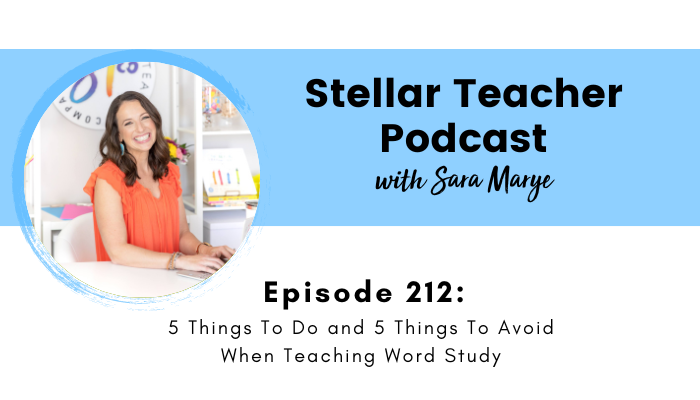
Click play below to hear advice on what to do and what to avoid when teaching word study in your classroom.
As a new school year approaches and you prepare your literacy lessons and schedule, I want to share some advice on teaching word study. In this episode, I’ll discuss 5 things to do and 5 things to avoid in word study instruction.
Expanding students’ vocabularies is crucial in upper elementary, so incorporate a daily word study activity. This should be a shared goal across all subjects, not just ELA. Make your lessons fun and engaging for all students, and always connect word study instruction to students’ reading and writing.
Teaching word study can be intimidating, but you don’t need to be an expert to start. You can do it! Reuse routines and activities throughout the year with new words. Keep instruction bite-sized, and teach word study concepts as generalizations, not rigid rules. The goal is not mastery but helping students apply what they learn to their reading and writing.
In this episode on word study instruction, I share:
- 5 things to do when teaching word study and examples on how this can look in your classroom
- 5 things to avoid when teaching word study and why
- 4 questions to ask your students that allows them to focus on words and think critically about them
- Why perfection isn’t required to implement word study into your classroom
Resources:
- Get on the waitlist to join The Stellar Literacy Collective
- Sign up for my Private Podcast: Confident Writer Systems Series
- Sign up for my FREE Revision Made Easy email series
- If you’re enjoying this podcast, please leave a review on Apple Podcasts!
Related episodes:
- 3 Steps to Having Effective Word Study Instruction This School Year (Episode 93)
- 4 Word Study Concepts Every Upper Elementary Teacher Should Teach (Episode 94)
- 4 Tips for Making Greek and Latin Root Words a Focus in Your Classroom (Episode 68)
- 5 Reasons Why You Need to Spend More Time on Sentence Writing in Upper Elementary (Episode 161)
Connect with me:
- Join my newsletter
- Shop my TPT store here
- Instagram: @thestellarteachercompany
- Facebook: The Stellar Teacher Company
More About Stellar Teacher Podcast:
Welcome to the Stellar Teacher Podcast! We believe teaching literacy is a skill. It takes a lot of time, practice, and effort to be good at it. This podcast will show you how to level up your literacy instruction and make a massive impact on your students, all while having a little fun!
Your host, Sara Marye, is a literacy specialist passionate about helping elementary teachers around the world pass on their love of reading to their students. She has over a decade of experience working as a classroom teacher and school administrator. Sara has made it her mission to create high-quality, no-fluff resources and lesson ideas that are both meaningful and engaging for young readers.
Each week, Sara and her guests will share their knowledge, tips, and tricks so that you can feel confident in your ability to transform your students into life-long readers.
Tune in on your favorite podcast platform: Apple, Google, Amazon, Spotify, Castbox, and more! If you’re loving this podcast, please rate, review, and follow!
Podcast (stellar-teacher-podcast): Play in new window | Download
Another thing to avoid with word study is don’t teach word study concepts as hard and fast rules. And I think it’s important to remind yourself that when it comes to word study and helping students understand the English language, what we teach them are generalizations. And I think oftentimes, you know, we do teach them as rules. I think a lot of like spelling programs will explain, you know, phonics patterns as spelling rules. The problem with a rule is that we assume that that rule applies to every single word, right? If it is a rule, it should be, it should always work. But with pretty much everything you teach in word study, there are going to be exceptions. And you definitely want to teach your students and explain to them the exceptions, because you want to make sure then, that if they see a word that doesn’t follow the pattern or the rule that they understand and they don’t get stumped on it. You know, for example, if you are teaching your students about prefixes, and you teach them that the prefix u n means not. And every time they see u n at the beginning of the word, that helps them know that, that you know word is going to have some meaning that is connected to not, and you can use that prefix to help them figure it out. Unlikely means not likely; they see u n at the beginning, and they can use what they know about the prefix to figure out the meaning of the word. Well, the problem is, is that there are some, not a lot, but there are some words that begin with u n, where it doesn’t serve as a prefix, uncle, U N, C, L, E, under U N, D, E, R, those words begin with un u n, but it does not serve as a prefix. And so if we tell our students that every time you see the prefix “un” that word part is going to have the meaning “not”, when they see these words, they’re going to be stumped, and then they’re going to be like, okay, well, I don’t understand the meaning of this word, you know, if it’s new for them, because the prefix doesn’t work in this case. And so rather than teaching word study elements as rules as this is every single time you encounter it. This is how it’s going to be. We teach them as generalizations. And I think it’s important that students understand within word study that there needs to be some flexibility with the application of it. There’s always going to be exceptions. And ultimately, if students have a strong awareness and understanding of word study concepts, they’re going to have the tools to help them understand and read most words. The goal is always going to be application of, you know, word study instruction to actual reading and writing. And in order to do that, they need to understand that these are generalizations and that there is a flexibility in applying them. So don’t teach word study concepts as hard and fast rules. Teach them as generalizations.
Okay, the third don’t is don’t feel like you have to introduce new word study activities every single week or every single month. There is power in consistency and routine, and there are tons of really fun word study games and activities, and there’s cute word study crafts, and there’s fun interactive journals with lots of moving parts and everything. And these sort of activities are fun and can serve a purpose in your classroom. But if you are feeling like you are crunched for time, and you do not have a lot of extra time to dedicate to word study, then you want to think about, okay, how can I pick one or two word study activities or routines and just use those all year long? Because every time you introduce a new game, every time you introduce a new, you know, interactive journal element, every time you introduce a new sort of craft, or some sort of activity, you have to introduce it. You have to model it. You have to explain it. You have to practice it. If you want your students to get the maximum benefit of it, you need to teach them how to actually do whatever that activity is. And so if every week it’s like, okay, we’re doing word study in a new way, then you’re having to teach them the new way how to practice word study. So instead of constantly introducing new different activities for word study practice, think about how you can use the same routines and have your students use those routines. The routine is the same, but the words are different because of what you’re teaching them in whole group. So things like word-of-the-day or word-of-the-week, word sorts, building words, these are probably some of my favorite word study activities, and these stay the same. It’s just as you teach them new word study elements, you’re switching out the words. So maybe they are sorting words a different set of words, but they understand how a word sort works depending on what types of prefixes and suffixes you’ve taught your students, they’re going to be building different words or more complex words, but they understand how to build words because you’ve taught them this routine and activity. So don’t feel like you always have to introduce something new. You can have effective and engaging and fun word study instruction with just two or three routines that you repeat throughout the year.
And then the fourth don’t is, don’t make mastery of word study objectives your end goal. And let me explain because, yes, we want our students to learn and know and internalize everything there is to know about word study. We want them to understand what we are teaching them, but we want them to understand what we are teaching them in the context of being able to read it and write it and apply it in a real, actual setting. And so let’s say that you are teaching your students all about the suffix “e d” and through your word study lessons, you know they know that when you add “ed” to the end of a short vowel word, that they’ve got to double the consonant. So they can spell “ed” words correctly, and they know that “ed” indicates past tense. And so they can sort words that are present tense and past tense in word sorts. And if you give them a quiz, they can tell you that shopped means to have, you know, shopped in the past and walked means that they have walked in the past, or you know it happened in the past, yesterday, last week, last year. But when they’re reading “ed” words, they still read them as “walkid” and “flipid” and “shopid”. Please tell me you’ve had third, fourth and fifth grade students who read those words incorrectly, because it happens every year. And so it’s like, yeah, your students did well with those word study activities, but if they are still reading the words incorrectly, then our word study instruction has fallen short. So rather than making your end goal mastery of the word study objective or the word study activity, you know, so rather assessing word study through a spelling test, a vocabulary quiz or, you know, some sort of worksheet or whatever it is, your end goal should always be application in real reading and writing. And so we just need to make sure that we do not lose sight of that.
And then the fifth thing that you should not do is don’t wait until you feel like you’re an expert to get started with word study. I think, and I’ve had this conversation with so many upper elementary teachers this summer, and my whole purpose of doing a word study series this August is because so many teachers say I don’t know how to teach word study, I feel like I don’t understand how to teach something like phonics in upper elementary, I don’t know how to support students who have gaps in their word study foundation. And so many teachers say, if I don’t know it, I just avoid it, I just skip it, and I just teach my grade level content without going back and, you know, trying to fill in the gaps. And I think, you know, especially if it comes to teaching some of those basic phonics principles, or helping students understand how to blend and break apart words, we feel maybe like, okay, I don’t I don’t know what to do, because the resources and the support and the training are not always present for upper elementary teachers in that area. But just because you are not an expert at it yet doesn’t mean that you won’t be. And the only way for you to improve your word study, instruction and practice and effectiveness is to just jump in and do it. And it’s okay if you make a mistake. It’s okay if you have an idea for an activity and it doesn’t work the way that you thought. It’s okay if you teach a lesson and you realize you taught too much, or you taught too little, or you didn’t explain it in a way. It’s okay if you teach your students a generalization that is maybe slightly incorrect and you go back and correct it later. You do not have to be perfect, but you definitely have to get started. So don’t wait until you feel like you’re an expert to start digging into words and word study.
Those are my do’s and don’ts of word study instruction. Let me quickly recap. You do want to do some form of word study activity or practice every single day. You want to make sure that you are teaching word study concepts in other subjects. You want to make sure that you are connecting your word study instruction to actual reading and writing, because, of course, that’s our end goal. You do want to structure your lessons so that all students are engaged in word study, and you want to make sure that you’re doing things to make word study fun.
Now these are the five don’ts, or the five things that you want to avoid. You don’t want to teach too much at once. You also don’t want to teach word study concepts as hard and fast rules. Remember, we can introduce them as generalizations. You don’t want to feel like you have to introduce a new word study activity every single week or every single month. We also don’t want to make mastery of word study objectives your end goal. Remember, the end goal is for students to apply them to their reading and writing. So yes, we want them to master word study concepts, but more importantly, want to make sure that they’re transferring that to their reading and writing. And then finally, and maybe the most important, don’t wait until you feel like you’re a word study expert to get started with word study instruction in your classroom.
Okay, I hope you found these do’s and don’ts helpful and are excited for a wonderful year of word study instruction ahead. Be sure to join us next week, we have a special guest on the show, and I can’t wait to introduce you to her.
Thanks so much for joining me today. If you enjoyed today’s episode and are finding value in this podcast, it would mean the world to me if you subscribe and leave a five star positive review. This helps me spread the word to more and more teachers, just like you. Don’t forget to join me over on Instagram @thestellarteachercompany, and you can also find links and resources from this episode in the show notes at stellarteacher.com. I’ll see you back here next week.

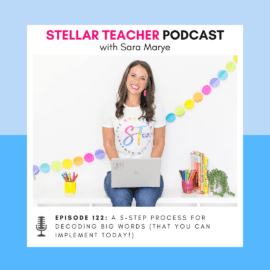
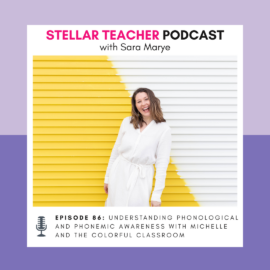
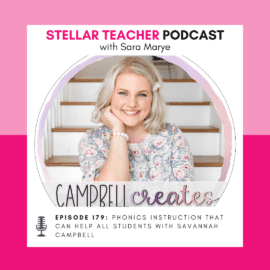
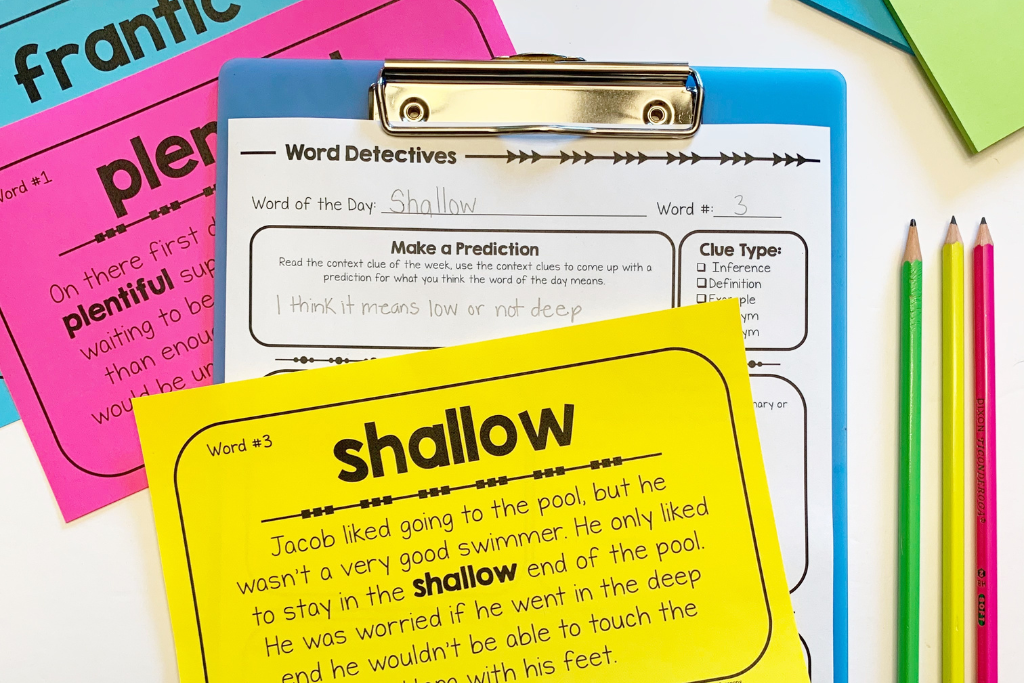

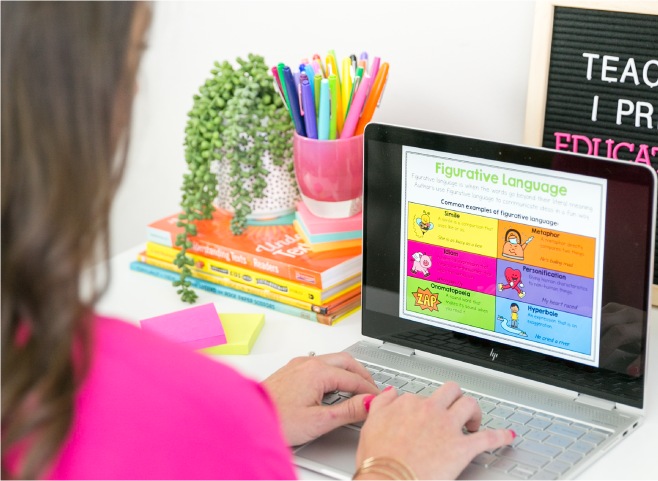

Leave a Comment
You must be logged in to post a comment.